Abarth 500 595 695 vs BYD Sealion 7 – Which car suits you better?
Both models have their strengths – but which one suits you more?
Compare performance, efficiency, price and space directly: Abarth 500 595 695 or BYD Sealion 7?
Costs and Efficiency:
Price and efficiency are often the first things buyers look at. Here it becomes clear which model has the long-term edge – whether at the pump, the plug, or in purchase price.
Abarth 500 595 695 has a distinct advantage in terms of price – it starts at 32600 £, while the BYD Sealion 7 costs 42800 £. That’s a price difference of around 10286 £.
In terms of energy consumption, the advantage goes to the Abarth 500 595 695: with 17.10 kWh per 100 km, it’s somewhat more efficient than the BYD Sealion 7 with 19.90 kWh. That’s a difference of about 2.80 kWh.
As for range, the BYD Sealion 7 performs clearly better – achieving up to 502 km, about 237 km more than the Abarth 500 595 695.
Engine and Performance:
Power, torque and acceleration say a lot about how a car feels on the road. This is where you see which model delivers more driving dynamics.
When it comes to engine power, the BYD Sealion 7 has a convincingly edge – offering 530 HP compared to 155 HP. That’s roughly 375 HP more horsepower.
In acceleration from 0 to 100 km/h, the BYD Sealion 7 is clearly quicker – completing the sprint in 4.50 s, while the Abarth 500 595 695 takes 7 s. That’s about 2.50 s faster.
In terms of top speed, the BYD Sealion 7 performs evident better – reaching 215 km/h, while the Abarth 500 595 695 tops out at 155 km/h. The difference is around 60 km/h.
There’s also a difference in torque: BYD Sealion 7 pulls decisively stronger with 690 Nm compared to 235 Nm. That’s about 455 Nm difference.
Space and Everyday Use:
Beyond pure performance, interior space and usability matter most in daily life. This is where you see which car is more practical and versatile.
Seats: BYD Sealion 7 offers to a small extent more seating capacity – 5 vs 4.
In curb weight, Abarth 500 595 695 is significantly lighter – 1410 kg compared to 2225 kg. The difference is around 815 kg.
In terms of boot space, the BYD Sealion 7 offers clearly more room – 520 L compared to 185 L. That’s a difference of about 335 L.
In maximum load capacity, the BYD Sealion 7 performs convincingly better – up to 1789 L, which is about 1239 L more than the Abarth 500 595 695.
When it comes to payload, BYD Sealion 7 hardly perceptible takes the win – 410 kg compared to 385 kg. That’s a difference of about 25 kg.
Who wins the race?
The BYD Sealion 7 proves to be is largely superior and therefore becomes our DriveDuel Champion!
BYD Sealion 7 is the better all-rounder in this comparison.
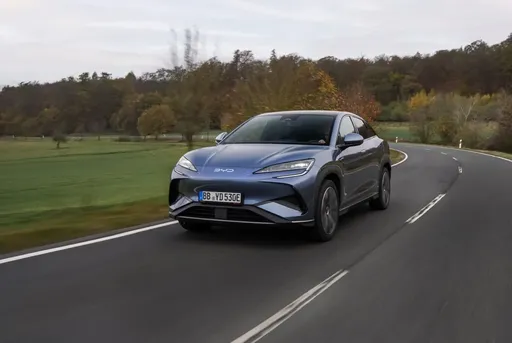 @ BYD Auto / BYD Global Media
@ BYD Auto / BYD Global Media
BYD Sealion 7
Abarth 500 595 695
The Abarth 500, particularly in its 595 and 695 renditions, captures the spirit of Italian motoring with its compact yet aggressive design. Known for its lively performance and distinctive styling, this little powerhouse is a joy to drive, offering an engaging experience that appeals to enthusiasts. With its rich motorsport heritage, the Abarth 500 embodies the essence of fun and excitement on both the streets and the race track.
details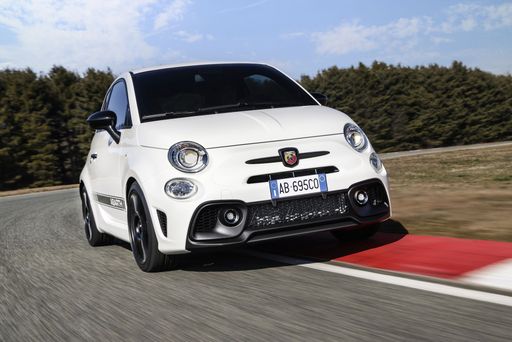 @ Abarth / Stellantis Media
@ Abarth / Stellantis Media
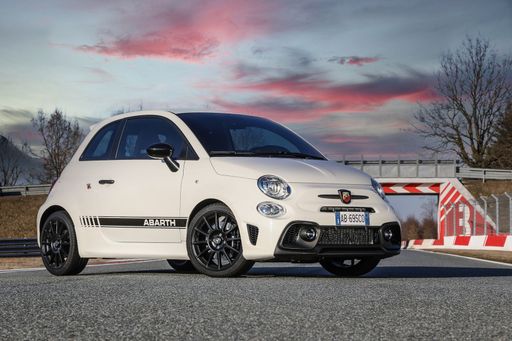 @ Abarth / Stellantis Media
@ Abarth / Stellantis Media
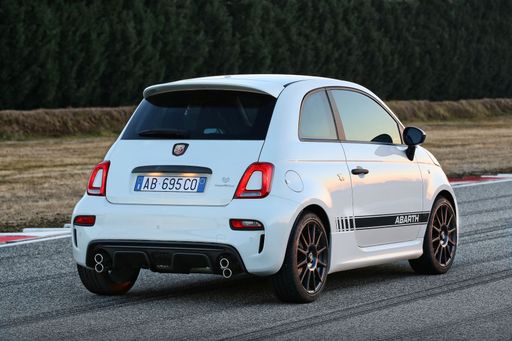 @ Abarth / Stellantis Media
@ Abarth / Stellantis Media
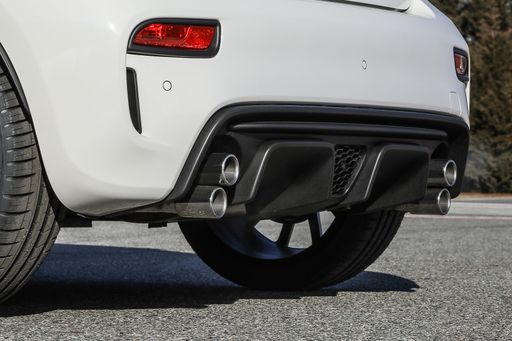 @ Abarth / Stellantis Media
@ Abarth / Stellantis Media
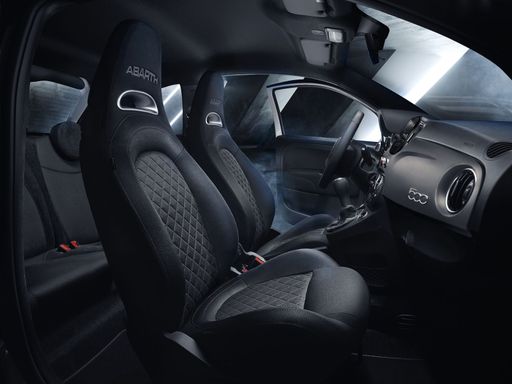 @ Abarth / Stellantis Media
@ Abarth / Stellantis Media
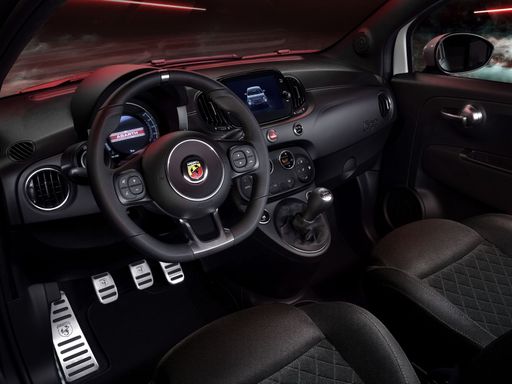 @ Abarth / Stellantis Media
@ Abarth / Stellantis Media
BYD Sealion 7
The Sealion 7 captivates with its striking design and impressive performance that appeals to both enthusiasts and casual drivers alike. With a focus on comfort and advanced technology, this model redefines the driving experience, making every journey enjoyable. Its sleek silhouette coupled with an innovative interior showcases the perfect blend of style and functionality.
details @ BYD Auto / BYD Global Media
@ BYD Auto / BYD Global Media
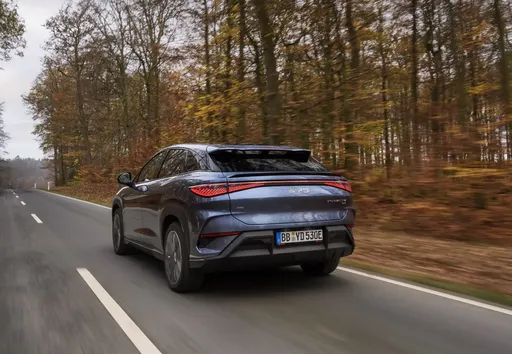 @ BYD Auto / BYD Global Media
@ BYD Auto / BYD Global Media
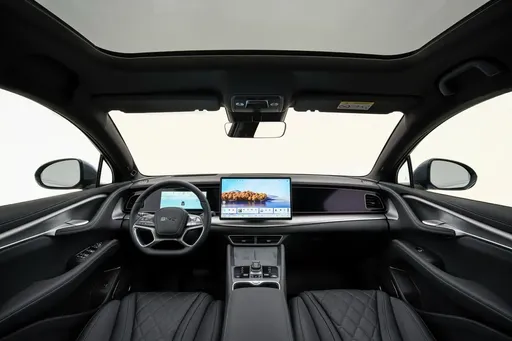 @ BYD Auto / BYD Global Media
@ BYD Auto / BYD Global Media
 @ Abarth / Stellantis Media
@ Abarth / Stellantis Media
|
 @ BYD Auto / BYD Global Media
@ BYD Auto / BYD Global Media
|
|
|
|
Costs and Consumption |
|
|---|---|
|
Price
32600 - 39400 £
|
Price
42800 - 52300 £
|
|
Consumption L/100km
-
|
Consumption L/100km
-
|
|
Consumption kWh/100km
17.1 - 18.8 kWh
|
Consumption kWh/100km
19.9 - 21.9 kWh
|
|
Electric Range
242 - 265 km
|
Electric Range
456 - 502 km
|
|
Battery Capacity
37.80 kWh
|
Battery Capacity
-
|
|
co2
0 g/km
|
co2
0 g/km
|
|
Fuel tank capacity
-
|
Fuel tank capacity
-
|
Dimensions and Body |
|
|---|---|
|
Body Type
Hatchback
|
Body Type
SUV
|
|
Seats
4
|
Seats
5
|
|
Doors
3
|
Doors
4
|
|
Curb weight
1410 - 1435 kg
|
Curb weight
2225 - 2435 kg
|
|
Trunk capacity
185 L
|
Trunk capacity
520 L
|
|
Length
3673 mm
|
Length
4830 mm
|
|
Width
1682 mm
|
Width
1925 mm
|
|
Height
1518 mm
|
Height
1620 mm
|
|
Max trunk capacity
550 L
|
Max trunk capacity
1789 L
|
|
Payload
370 - 385 kg
|
Payload
410 kg
|
Engine and Performance |
|
|---|---|
|
Engine Type
Electric
|
Engine Type
Electric
|
|
Transmission
Automatic
|
Transmission
Automatic
|
|
Transmission Detail
-
|
Transmission Detail
Reduction Gearbox
|
|
Drive Type
Front-Wheel Drive
|
Drive Type
Rear-Wheel Drive, All-Wheel Drive
|
|
Power HP
155 HP
|
Power HP
313 - 530 HP
|
|
Acceleration 0-100km/h
7 s
|
Acceleration 0-100km/h
4.5 - 6.7 s
|
|
Max Speed
155 km/h
|
Max Speed
215 km/h
|
|
Torque
235 Nm
|
Torque
380 - 690 Nm
|
|
Number of Cylinders
-
|
Number of Cylinders
-
|
|
Power kW
114 kW
|
Power kW
230 - 390 kW
|
|
Engine capacity
-
|
Engine capacity
-
|
General |
|
|---|---|
|
Model Year
2023
|
Model Year
2024
|
|
CO2 Efficiency Class
A
|
CO2 Efficiency Class
A
|
|
Brand
Abarth
|
Brand
BYD
|
Is the Abarth 500 595 695 offered with different drivetrains?
The Abarth 500 595 695 is offered with Front-Wheel Drive.
The prices and data displayed are estimates based on German list prices and may vary by country. This information is not legally binding.
